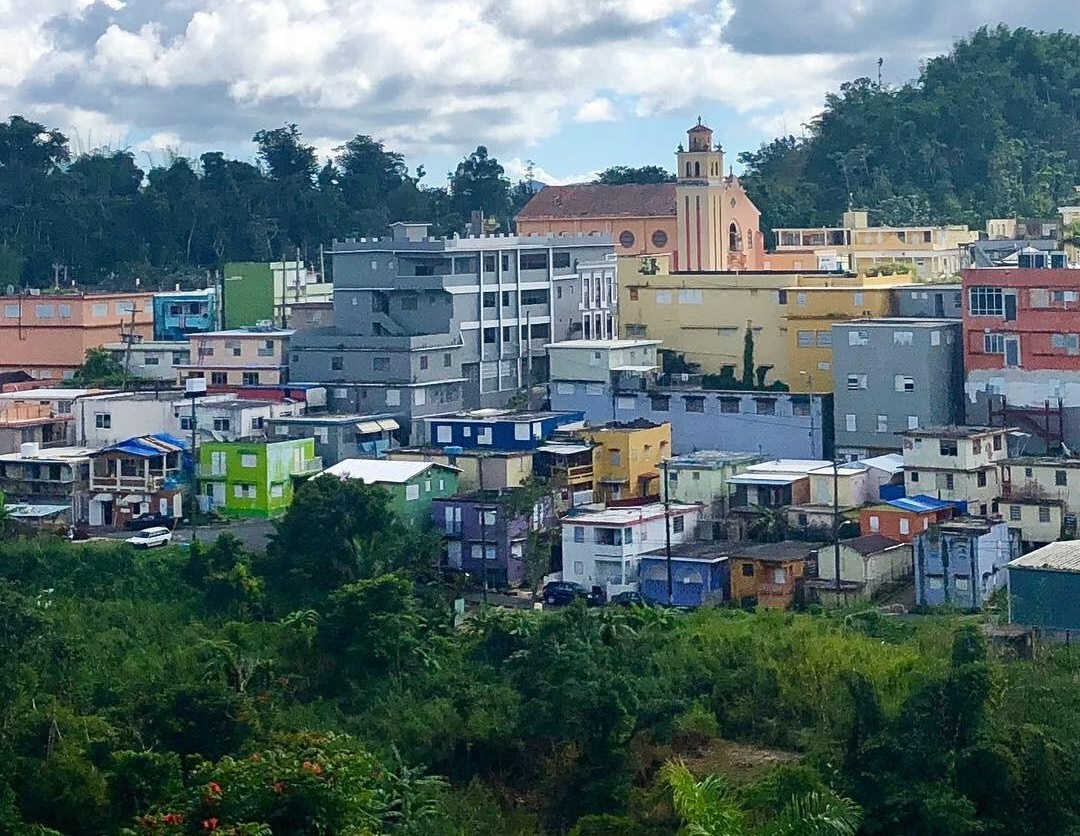Climate Change Solutions: An Opportunity to Subvert Capitalism
In a world that is increasingly facing global-level crises, we have a unique opportunity to learn from each other and consider that universal climate solutions can start from a local understanding.

C+S 2021 students are blogging about topics that interest them for Applications in Climate and Society, a core spring class.
In the town of Barranquitas, Puerto Rico, hundreds of colorful dwellings peek out of the mountainside in an eclectic display. In November 2018, I helped rebuild some of these charming traditional homes just over a year after Hurricane Maria struck the island. During my stay, I spent a few weeks at the All Hands and Hearts Barranquitas volunteer base as well as some weekends visiting family in San Juan. What I witnessed were two very different Puerto Ricos; the once devastated but now rebuilt capital city, and the forgotten rural communities still marked by disaster.
Climate change has increased the frequency and intensity of extreme weather events such as Hurricane Maria. The aftermath of these disasters offers a chance to invest in sustainable change. This opportunity is, however, often misused. We normally resort to the same capitalist quick fixes. In Puerto Rico, corporations and investors were able to exploit a post-disaster situation to finance the rebuilding of tourism and the private industry. When driving through San Juan, it was clear to me that repairing hotels, resorts, and strip malls was the priority. Not long after the hurricane, then-Gov. Ricardo Rosselló approved the island’s transition to a privatized and profit-motivated energy sector. Puerto Rico’s colonial history as an island exploited by the U.S for economic gain has resulted in its industrialization and dependence on the federal government and corporate America for various resources, making self-sufficiency especially difficult to achieve.
However, in the face of climate change, the people of Puerto Rico are already envisioning a new future; one that involves tapping into traditional knowledge and customs that have, for many years, been losing their influence at the hands of Americanization. One such movement is agroecology: a holistic approach to farming that prioritizes diverse and resilient crops as well as knowledge of the local environment. The island’s current agricultural system relies heavily on mono-culture exports, mostly controlled by the U.S.
The main crops grown in Puerto Rico are rice, coffee, sugar cane, and corn. However, their continued production can lead to soil degradation and a loss of biodiversity. A transition to a more resilient and small-scale farming system would not only empower farming communities but also act as a method of disaster preparedness. With 80% of crop value destroyed after Hurricane Maria, farmers who practiced agroecology techniques were some of the only people able to provide food for their families and link with their local communities following the disaster. Now, some smallholder farmers are connecting with organizations such as Organización Boricuá and sharing their knowledge of practices that use resources efficiently, eliminate pesticides, and harvest resilient root vegetable varieties such as taro.
These local and communal approaches are not new concepts on the island. Puerto Rican culture embodies community, unity, and simplicity. Traditional homes on the island are not very large and often house extended family members. It takes abuela, tia, and all the kids in the house to make a batch of pasteles that is then shared with the whole neighborhood. These communal values are inherently sustainable but are threatened by capitalist development and industrialization. This is especially the case as Puerto Rico’s debt continues to increase, strengthening the island’s dependence on the U.S for food, energy, and finance.
The response to Hurricane Maria is just one example of the all too familiar letdown that marginalized communities experience when faced with disaster. Too often, responses from developed countries focus on neoliberal and western approaches to post-disaster rebuild. Climate change requires societies to adopt not only more sustainable systems but fundamentally different ideologies. This includes a focus on equality and communalism over individualism. It also involves empowering and listening to marginalized communities that hold traditional knowledge. In a world that is increasingly facing global-level crises, we have a unique opportunity to learn from each other and consider that universal climate solutions can start from a local understanding.
